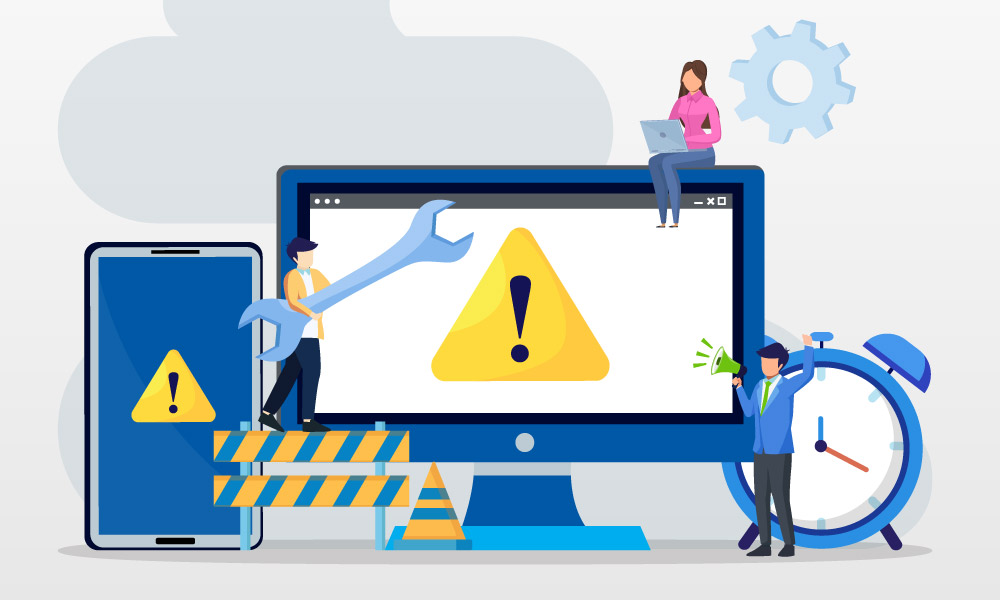7 Things to Look for in a Data Protection Officer

Hiring a data protection officer is an important process, so make sure you’re prepared. Read on to learn the top seven things to look for before hiring a professional in this field.
So you’ve heard all about the GDPR, and the headache it might be complying with it. But, we know that there isn’t another option. Either you stop doing business with European citizens, or you implement GDPR policies.
We know that the first option isn’t possible since the GDPR applies to businesses having done business with EU citizens and even those with high web traffic from the EU. One of the best and recommended ways to comply is by hiring a Data Protection Officer. If you’re reading this article it means that you’re in the process of implementing GDPR policies, and are hiring a protection officer for your company. You have no idea what skill set you should look for?
Don’t worry! We have you covered.
Hiring a Protection Officer: Where to Start?
Before we get into the skill set that you should look for in your data protection officer, we’ll give you a refresher on the GDPR. What is the GDPR?
The General Data Protection Regulation (GDPR) is the law passed by the European Union to protect the information of the consumers. This regulation will go into effect in May 2018.
This law establishes that businesses must protect the information provided by European consumers, and give them ways to control their information.
The effects of not complying with this law are a bit steep. The GDPR imposes fines of up to 4% of their global turnover or up to 20 million Euros. It’s a high price to pay most of all if you aren’t a huge company.
A great way to be compliant and prevent any GDPR is hiring a data protection officer (DPO). Your DPO will be your in-house GDPR expert. He or she will work hand in hand with your IT department to put in place all the policies needed to comply with this law.
Like when you hire your IT teams, there are several traits your GDPR DPO should have. Here are 7 things you should look for in the DPO you hire:
1. Legal Knowledge
This law imposes on DPOs obligations like legal knowledge, confidentiality, and working independently. These officers must understand GDPR to a high level of expertise in accordance with the type of data processing.
In other words, the officer should be an expert in GDPR and other related EU laws but also on other data protection and privacy laws. Since we are living in a globalized industry, your expert should know how you can comply with the data processing laws in all the jurisdictions you service. This should include jurisdictions where you outsource your operations.
A DPO is held to a high ethical standard. This is why the person you hire must have experience working independently, and preserving confidentiality in their role.
This officer will be handling sensitive information continuously. So it’s important for them to have experience doing audits and, enforcing compliance in a friendly manner.
When the enforcement phase is put into action, it will be difficult to do it in a flawless way if your DPO doesn’t have bedside manners.
2. Globalized Business Attitude
Your DPO will probably be dealing with other IT professionals who are located in different countries. This means that if they don’t have experience dealing with teams that aren’t located in the same country, they won’t know how to handle the different business cultures.
Knowing how to deal with global business cultures will be crucial to your success when implementing the new GDPR policies. If you currently don’t have outsourced teams located in other countries, you’ll have to outsource some operations sooner or later.
So it’ll be better to have a DPO in your corner who already knows how to handle teams or professionals from different business cultures.
3. Risk & IT Assessment Expertise
The GDPR requires that the DPO gives the IT teams and business insight on audits, risk, and data protection assessments. These insights will be key to a successful implementation of GDPR policies. The DPO you hire should have extensive hands-on experience in best practices mitigation, security and privacy assessments.
You’ll need someone who has done information standards and privacy certifications or seals. They should’ve acquired this expertise through experience in the IS audits, IT programming and infrastructure.
Your DPO must have an all around know how because the risks keep changing, and he or she needs to be able to spot any possible threats early on or before they happen.
4. Team Leader
To meet the GDPR requirements, the DPO must have excellent leadership and project management skills. They must be able to plan, request resources, and lead teams to help the company achieve the highest consumer data protection standards.
He or she must have a broad experience in the data processor, and controller industries, because they must know how to implement and, integrate privacy controls flawlessly.
5. Good Communicator with Teaching Skills
Your DPO will be your in-house expert when it comes to consumer data privacy. This means that your team members will ask him or her continuously about related issues.
Your data protection officer must be able to communicate complex and technical jargon in everyday language. This skill is very important because they’ll be handling customer complaints. If they don’t know how to communicate effectively with your teams and customers, your business won’t be successfully compliant with the GDPR.
6. Self-Starter
The GDPR establishes that the DPO work as if they were a free agent. They must not receive orders from the data processor and controllers. A DPO must be competent and skilled enough to perform their duties and, find the information they need without any guidance.
7. Credibility
The GDPR regulation establishes that the DPO must be dedicated to this role. They can’t have any conflicts with other processes such as overseeing security that’s surveyed under the DPO role.
If your DPO has this type of conflict, he or she loses their credibility under the GDPR. It’s recommended you outsource this role if you feel that hiring an in-house data protection officer will cause these conflicts.
Wrapping It Up
Now that you know what things to look for when hiring the protection officer for your business, it shouldn’t be difficult. Remember that since the GDPR is a complex regulation, you need to have in your corner someone with the extensive experience and expertise.
Your candidate might not be perfect but if they possess the essential experience building blocks, they’ll be able to keep your business in top GDPR compliance shape.
Want to prepare your website for the GDPR? We can help!





